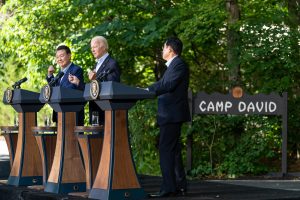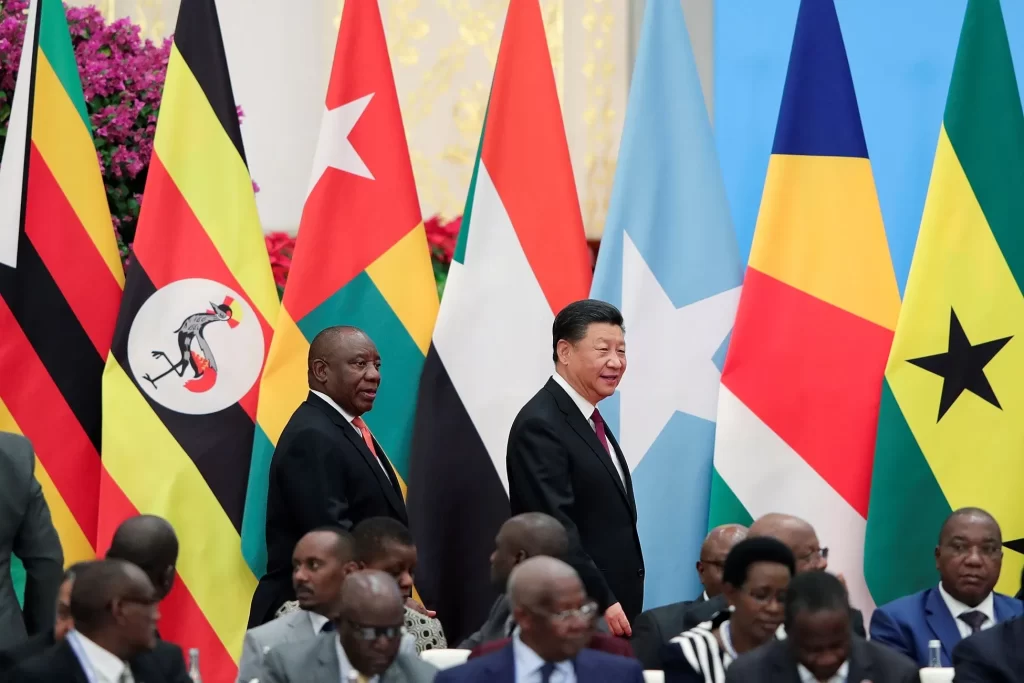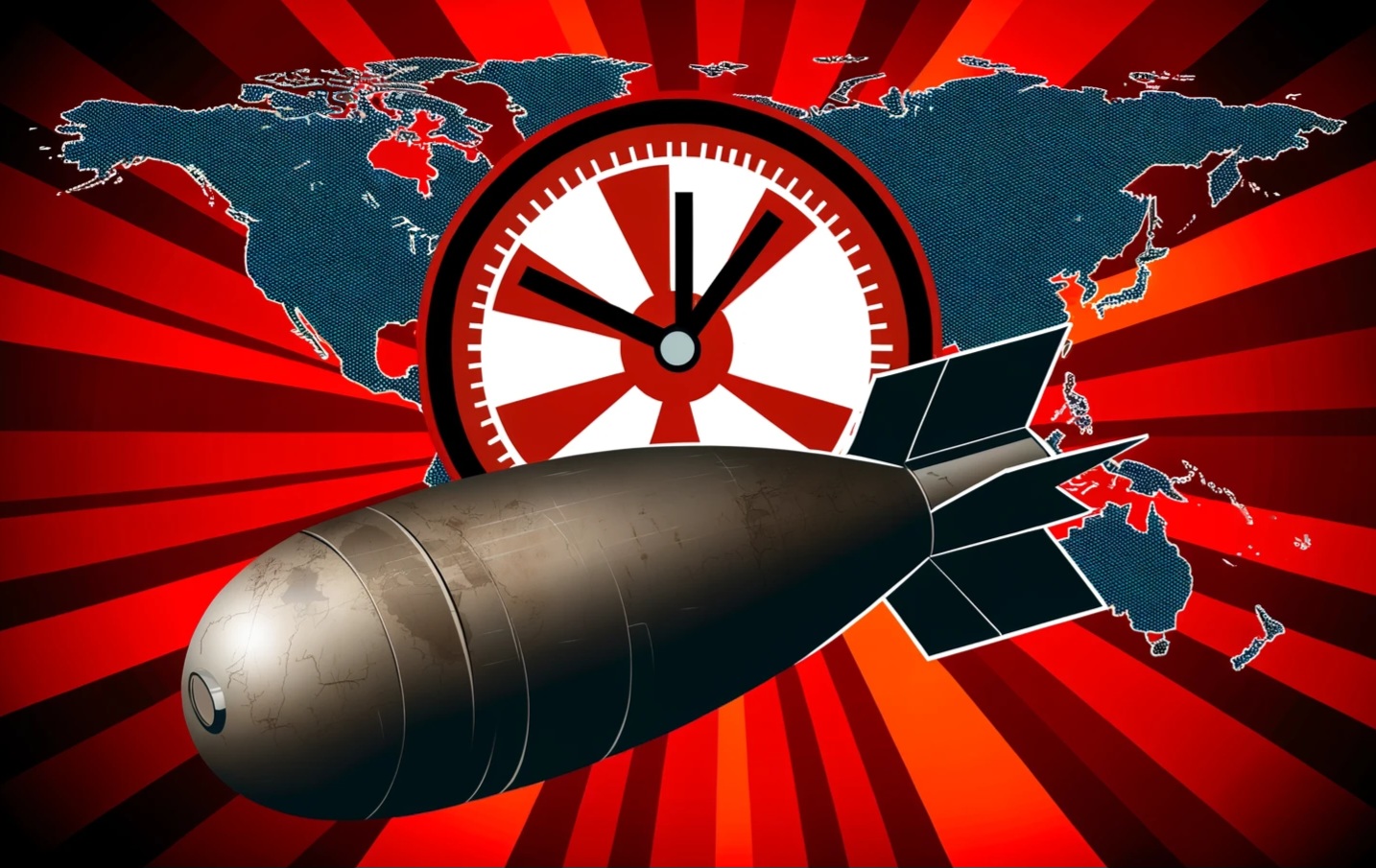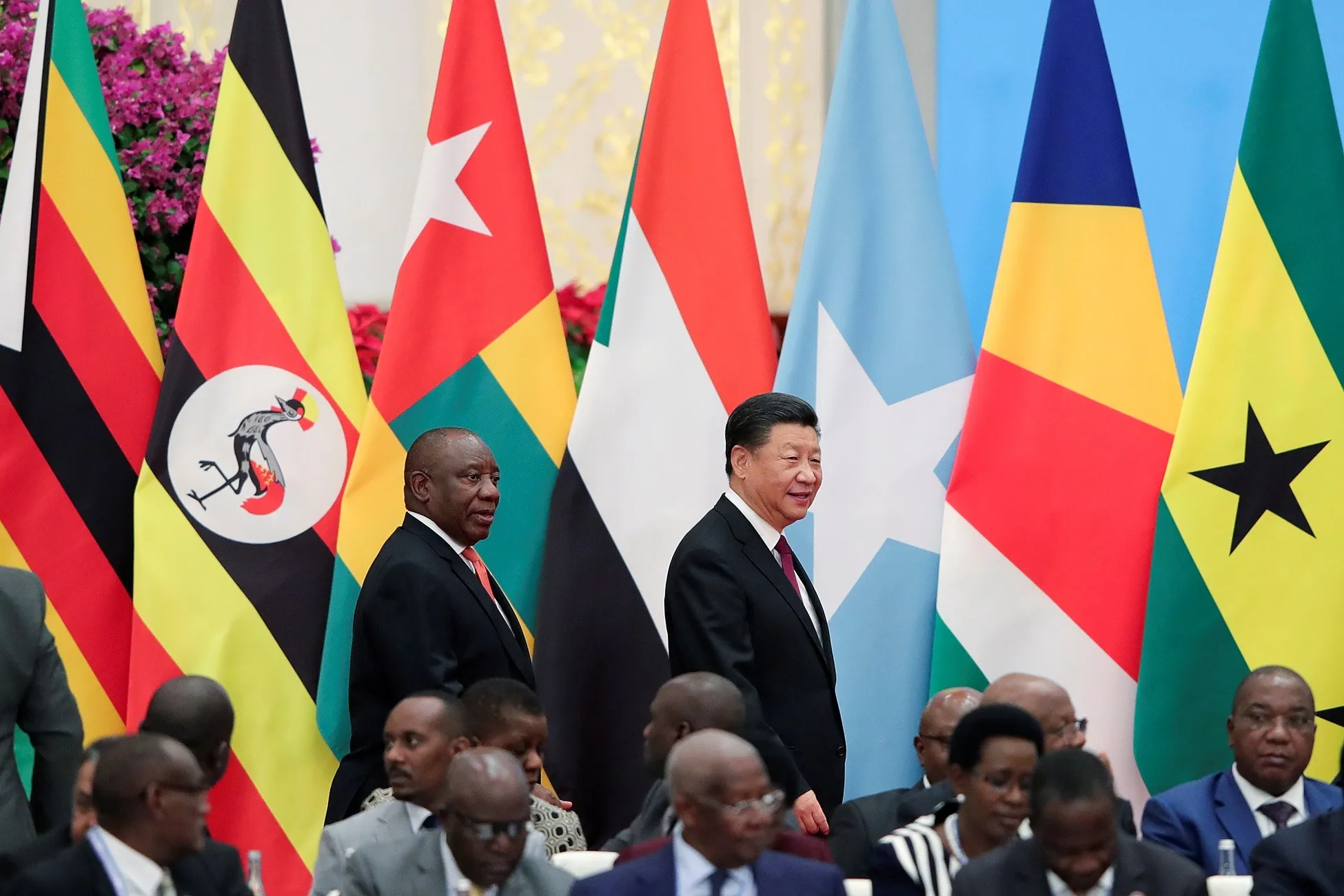








As China positions itself as a key player in Africa’s economic development, African nations are seeking greater independence and sustainable growth opportunities through this renewed partnership.


Welcome back to Africa Brief, where we take a look at the latest developments in Africa continent. This week, our focus is on the growing ties between China and Africa, as the highly anticipated Forum on China-Africa Cooperation (FOCAC) summit is set to take place in Beijing from September 4th to 6th. The summit, the first of its kind since 2018, will bring together Chinese President Xi Jinping and leaders from over 50 African countries under the theme “Joining Hands to Advance Modernization and Build a High-Level China-Africa Community with a Shared Future.
China continues to deepen its connection with African countries through the Forum on China-Africa Cooperation (FOCAC) summit to be held next month. The gathering will be the first one held in Beijing since the FOCAC summit of 2018. This year’s summit will include China and members of over 50 African countries. The highly anticipated gathering will herald what leaders hope will be a new stage of China-Africa relations.
The theme of the summit beginning on September 4th and continuing until the 6th is “Joining Hands to Advance Modernization and Build a High-Level China-Africa Community with a Shared Future.” Chinese President Xi Jinping is set to host African leaders at a critical juncture for both African countries and China. As African nations seek funds for economic and infrastructure development, China looks to Africa as a key supplier of material resources. It also seeks to develop consumer markets for goods it has been unable to trade with G7 nations.
The FOCAC summit will take place amidst an increasingly tense international competition between China and Western countries like the US, according to political analysts such as Shen Shiwei, a non-resident research fellow at the Institute of African Studies at Zhejiang Normal University. Many African nations view China’s involvement more favorably compared to their previous economic relationships with Western nations, where increased collaboration would now involve partnerships with regional development banks and established African financial institutions. These connections are ones that African leaders hope will offer them greater autonomy as they pursue economic development on terms more aligned with their own values. For the many African nations struggling with significant debt, the FOCAC summit could signal a substantial improvement in their current situations. The summit would also allow China to provide debt relief for African countries participating in the G20 Common Framework, collaborate on green initiatives, and strengthen alliances with nations in key global trade locations.
The FOCAC summit reflects other international relationships that China seeks to develop with African nations, such as the expansion of the BRICS global partnership. The economic group, originally composed of Brazil, Russia, India, China, and South Africa, has extended invitations to Egypt, Ethiopia, Iran, Saudi Arabia, and the United Arab Emirates. These nations have accepted the invitations to join the partnership as of January 2024, further strengthening China’s financial connections with countries in Africa and neighboring regions.
For over a decade, BRICS nations have been Africa’s largest trading partners, with China constituting the majority of those partnerships. According to many experts, the multi-billion-dollar BRICS trade agreements have been largely motivated by a desire for greater access to the vast natural resources available across much of the African continent. This shift towards natural resource acquisition marks a change from past BRICS foreign direct investments (FDI), which were more heavily focused on manufacturing and service industry projects. With South Africa’s economy accounting for over one-third of the continent’s total economy, many view it as an important entryway for BRICS into Africa’s large consumer market.


Power’s ethical toll. Thought-provoking critique of human nature in politics.

In today’s world, the presence of nuclear weapons emerges as one of the most critical factors capable of sustainably altering power balances in the international arena.

Like antisemitism in Europe, Palestinian land sales and the critical role of terrorist groups in the formation of Israel.
Written By: BATUHAN GUNES
Written By: KRISTIN HYNES
Written By: ERIC SONG
Written By: ALEXANDER BERGH
Written By: KATE-REID SMITH
Written By: JOSEF SCHOEFL
Written By: PATRIC MCFARLAND
Written By: FATIH CEYLAN
FA’s flagship evening newsletter guilding you through the most important world streis ofthe day. Delivered weekdays.
